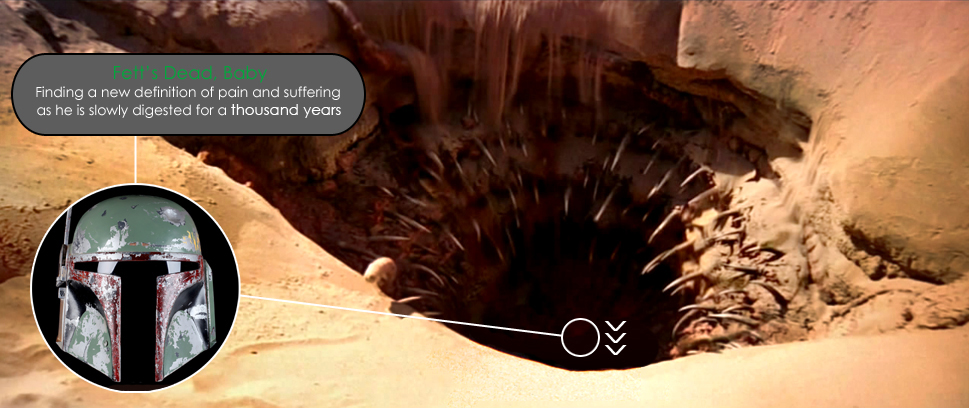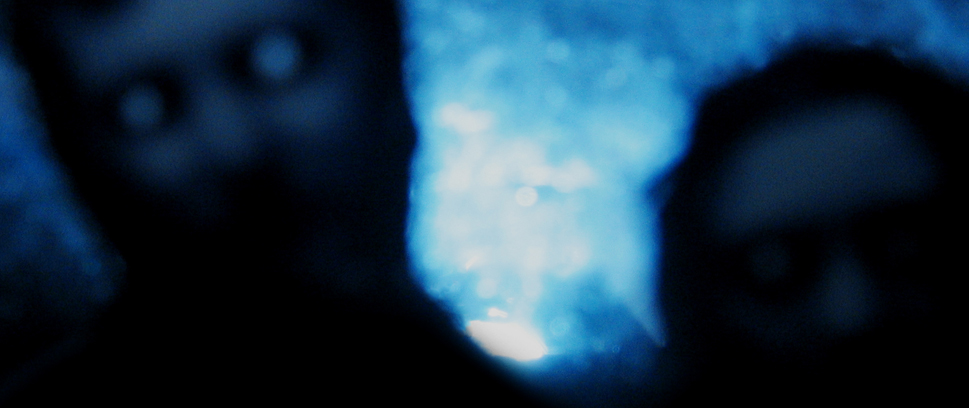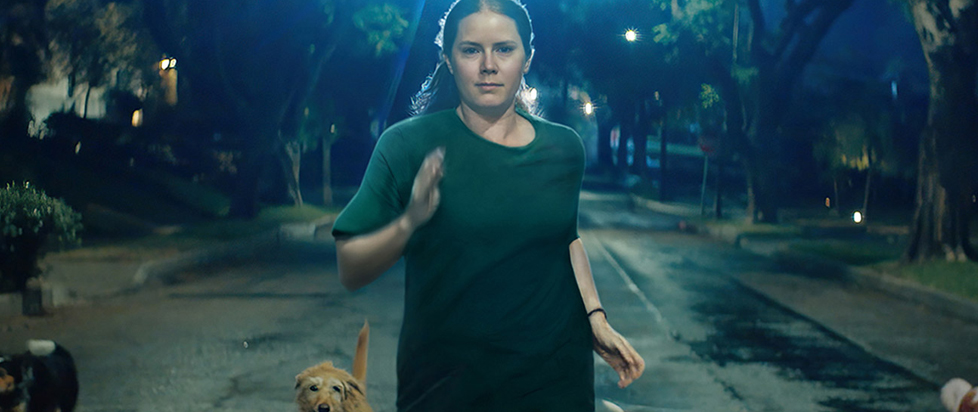
Nightbitch

This column is a reprint from Unwinnable Monthly #183. If you like what you see, grab the magazine for less than ten dollars, or subscribe and get all future magazines for half price.
———
Elsewhere, here.
———
I have a new baby, which I didn’t think I’d be writing about regularly, but then you have a baby and it’s not so much that it colonizes your mind as much as that there is a new stranger in your life you’re suddenly spending a lot of time with and so they come up a lot in conversation; not so different than a new crush or co-worker. This is part of what Nightbitch, the new movie from Marielle Heller, is about, and so it is kind of for me. Also, for me: struggling to make art, which Nightbitch is about at its core, which I am about at my core. Also, for me: anything with Scoot McNairy, whose character in the film shares some annoying qualities with my husband although mostly in a funny way, (“You know when you’re not home I manage to give the baby a bath by myself” I said to him about 30 seconds before Amy Adams did in the movie).
I don’t need or want movies to be relatable, but when something is this much for me, and from a filmmaker whose work I’ve loved in the past, I did expect to connect more with this particular film. It’s not even about the dog thing (the mom turns into a dog at night), partially because the whole fantasy element could be excised neatly from the film without it feeling much different, which is a worrisomely blasé way to come out of a film where someone turns into a dog at night.
The disconnect is possible because, of the two big ideas floating around in the film, the more interesting one isn’t connected well to the dog stuff, which is mostly used in service of a bio-essentialist feminist vision of motherhood that I find both problematic and very safe, very in the zeitgeist. No one is claiming motherhood is pure bliss anymore except for tradwife content, and generically that functions mostly as pulp-kink and no one respectable takes it that seriously. On the other hand, kindly strange mothers on the street have told me to read Matrescence, and I get it. I cannot fault people for looking for meaning in the awesome physical transformation required to give birth, but I worry that in the understandable desire to recognize the very real toll and power of birthing people’s emotional and physical bodies, we are entrenching ourselves even further into dichotomies of mother/father and away from a more universal parenthood that might – long term – be better for moms.
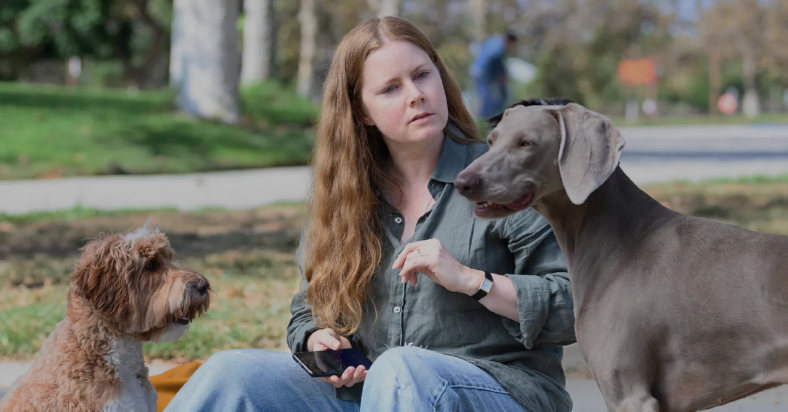
The biology can’t be ignored – shouldn’t be – and the parts of the dog-magic that worked best for me were the moments when Adams looks at her new dog nipples in the mirror with the kind of mild, curious acceptance borne from being only the last in a string of transformations. Pregnancy and birth is wild stuff and there are many relationships to have with that experience, but the plot resolves with a woman-as-mothergoddess epiphany that made me roll my eyes. This does not solve your problem! I wanted to yell at the screen. This is a labor issue!
The thing is, the movie knows this. Amy Adams is miserable because she’s not making art, and she is not being supported by her husband to do so. In my short existence as a parent this is where the biology of birthing has been the most relevant. It’s a time suck. Nine months of nausea and exhaustion eating at your creative brain and then more exhaustion, and breastfeeding, and pumping, and rehab, none of which are possible for my husband to take over from me. Parenting a baby can only ever be equitable at best, never equal.
But Amy Adams doesn’t have a baby anymore, she has a much less specifically dependent toddler, and when she finally tells her husband that this is important, there don’t seem to be any obstacles towards her making work. He’s understanding. She’s efficient. They have space for a studio in their home and enough income for her to not be working in the first place. This is what babysitters are for. As soon as she commits to it, she makes art, finds somewhere to show it, and receives acclaim. This was difficult for me to watch – ignoring my day-job to type this while my baby wakes up from his nap and pretending I don’t hear his little squawks from the other room because it hasn’t been two hours and he’s not cranky. I’m jealous of her for ever having the job she regrets quitting, and jealous that she is trying to manage two things at once and not three. I’m jealous that when she finally makes something there are people waiting to give it consideration. Without there being any real material barriers (challenges, yes, but not barriers) to her making art, the problem turns out not to be a labor issue after all, but an aesthetic one: a semi-willing acquiescence to a plan that is not working for her because her aesthetic conceptions of motherhood are incompatible with the ones she has of herself as an artist.
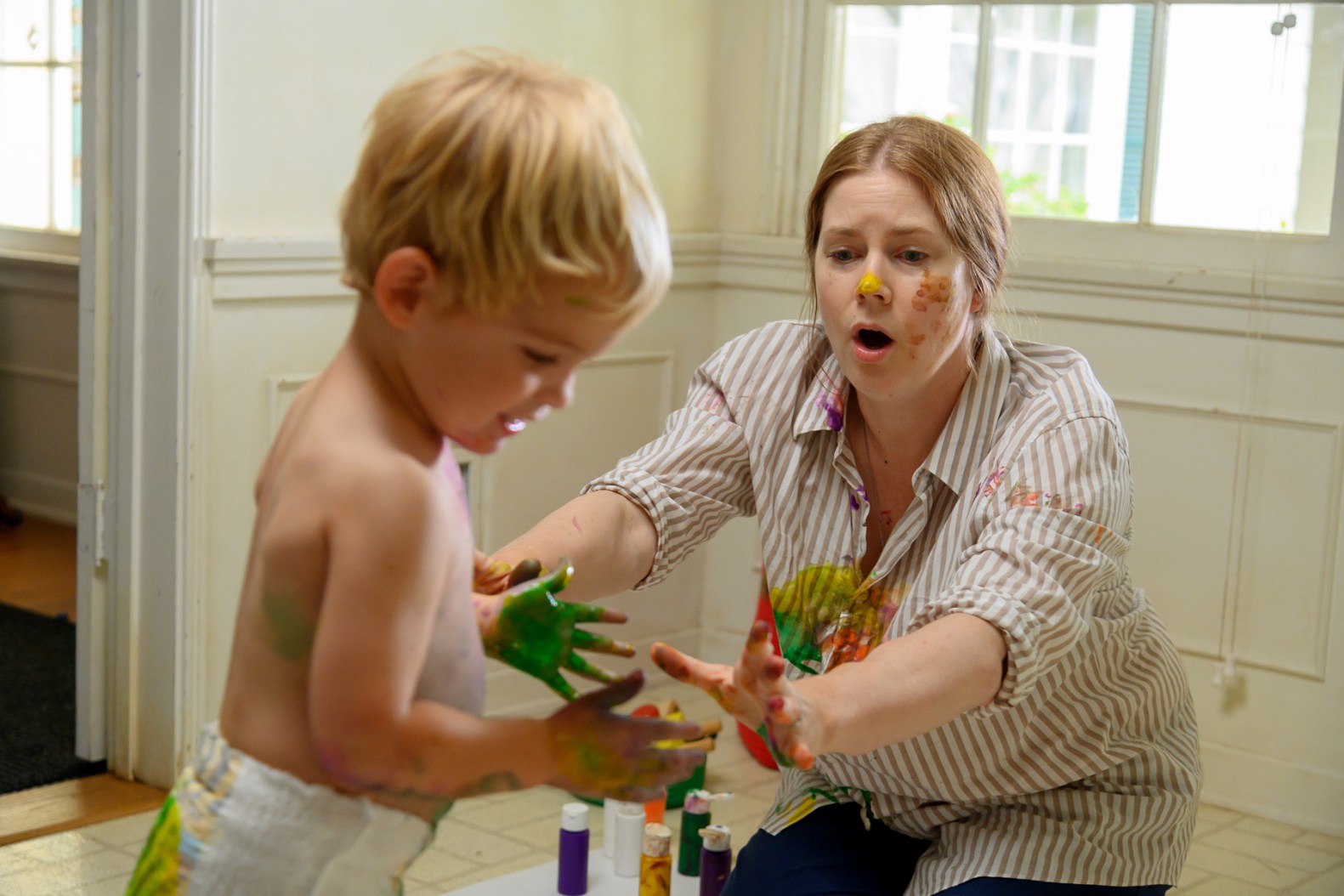
This is where the dog-thing could have come in, an embodied wild selfishness as she re-aestheticizes herself as artist; a freeing from the internal judgements that are sometimes the biggest impediment to being both a parent and a person. Sometimes the movie gets there: when she fucks her husband covered in dirt, or when she (hilariously) kills the family cat. More often though, the dog is the embodiment of her mom-ness, re-framing the job from one of drudge-work to one of fun and tenderness that is genuinely beautiful and touching and relatable, but that never quite feels connected to the journey she needs to take to become an artist again. At the end we are left with the message that women should not give up their art to have children, and neither should they give up their children to make art, but the film is too afraid to claim her selfishness. Instead, it is depicted as an act of self-care that benefits the child and the husband as much as herself. And it is that, but even if it wasn’t, that elides the point. That’s the hard part: demanding to be seen as an artist even when it only serves yourself, and that is even more true when you’re not showing work, when you have not reached the success that you want, when you are still in the middle of things before you become a parent.
The movie recognizes that allowing wildness and bad behavior must be part of parenting in order to remain ourselves, but its pointy parts are a little too soft to really leave an impression of what that might look like. Fuck dogs, I want to be a wolf.
Natasha Ochshorn is a PhD Candidate in English at CUNY, writing on fantasy texts and environmental grief. She’s lived in Brooklyn her whole life and makes music as Bunny Petite. Follow her on Instagram and Bluesky.

